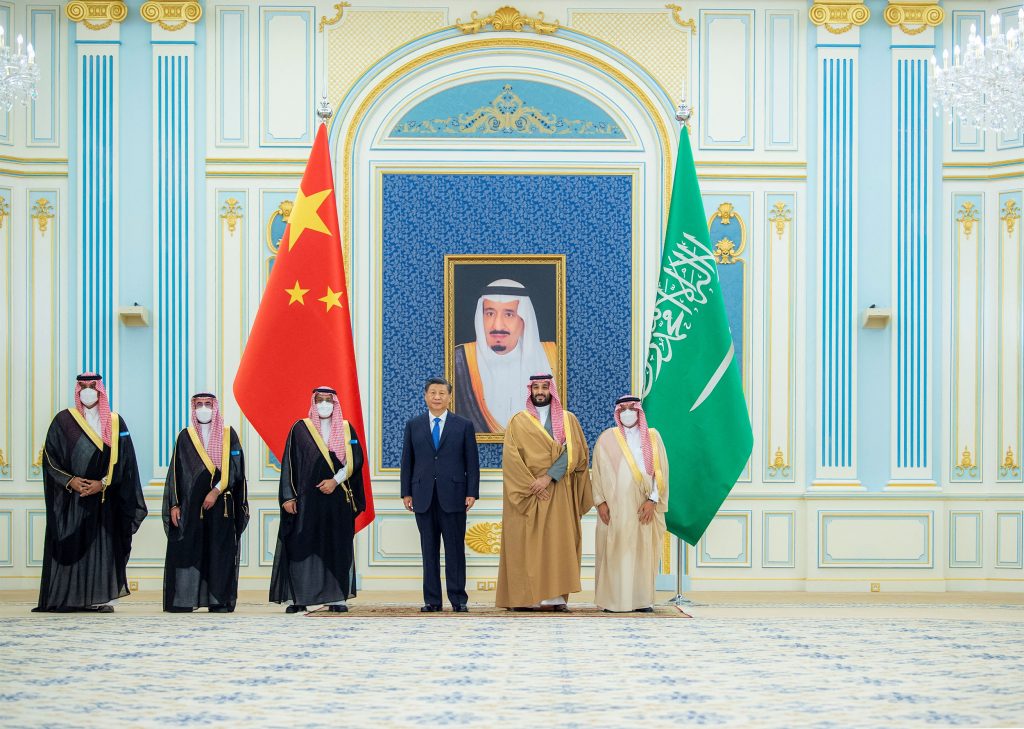Pomp and circumstance are important. So are multiple agreements to be signed during Chinese President Xi Jinping’s visit to Saudi Arabia this week, his first venture beyond East and Central Asia in three years.
No doubt, Xi’s reception will be on par with the welcoming of Donald J. Trump when he headed to Saudi Arabia in 2017 on his first overseas trip as US president. At the same time, it will contrast starkly with the more downbeat response to Joe Biden’s hat-in-hand pilgrimage to the kingdom in July.
Xi Jinping and Saudi Crown Prince Mohammed Bin Salman’s timing is perfect. The visit allows Gulf states, with Saudi Arabia in the lead, to further diversify their foreign relationships and hedge their bets as the world moves from a unipolar to a bipolar, if not multipolar, order.In addition, Xi’s visit boosts the positioning of Bin Salman and his kingdom as undisputed leaders of the Muslim world.
Like when Trump was in town five years ago, Bin Salman has ensured that Xi’s visit will involve bilateral talks and multilateral gatherings with Gulf and Arab leaders.
Even though Xi and Gulf leaders project the Chinese president’s visit as a milestone rather than the latest of regular high-level gatherings, neither seeks to fundamentally alter the region’s security architecture with the United States as its guarantor.
On the contrary, while eager to strengthen and expand relations with China, Gulf states see Xi’s visit as a vehicle to pressure the United States to spell out and formalize its security commitment to the region at a time when America has made China and the Indo-Pacific its main strategic concern and has not lived up to the region’s expectations.
Speaking three weeks before the Chinese leader’s visit, Anwar Gargash, the diplomatic adviser of United Arab Emirates President Mohammed bin Zayed, insisted that “our primary strategic security relationship remains unequivocally with the United States… Yet, it is vital that we find a way to ensure that we can rely on this relationship for decades to come through clear, codified, and unambivalent commitments.”
Xi has no problem with that. On the contrary, China is not interested and perhaps incapable of replacing the United States militarily in the Gulf. So while it may want the United States out of East Asia, the same need not be valid for the Middle East. That allows Xi and his Saudi and Arab counterparts to focus on the nuts and bolts of their meetings.
High on Xi’s agenda was the export of its model of authoritarianism, involving one-person rule, a surveillance state, and the ringfencing of the Internet. It’s a model that appeals to men like Bin Salman and UAE and Egyptian presidents Mr. Bin Zayed and Abdel Fattah Al-Sisi.
The appeal remains, even if Xi’s proposition has lost some of its shine as a result of his faltering zero-tolerance Covid-19 policy that has slowed economic growth, hindered the country’s private sector that is also hobbled by punitive state interventions, and sparked an anti-government protest that has forced the Chinese leader to abandon core elements of his effort to control the pandemic.
Moreover, Middle Eastern leaders will have noticed that China’s firewall failed to prevent Internet users from discovering that a majority of spectators at World Cup matches in Qatar were unmasked. Nor were Chinese censors able to prevent an avalanche of video clips of nationwide protests against strict Covid-19 rules from flooding the country’s tightly policed social media.
In addition, Gulf efforts to diversify their economies and reduce dependence on fossil fuel exports centre on a free-market economy and a private sector driven by innovation and creativity rather than the kind of state-controlled capitalism envisioned by Xi.That has not prevented China from advancing its control and governance systems with investments and partnerships in Middle Eastern telecoms, corporate communication systems, cybersecurity, and smart cities in countries stretching from Morocco to the Gulf.
Chinese involvement runs the gamut from building 5G systems and data centres to providing cloud services and developing artificial intelligence systems. Investments in technology and knowledge transfers enable Arab autocracies to enhance their surveillance capabilities and Internet control. Furthermore, countries like Egypt, Saudi Arabia, and the UAE have looked for inspiration in China’s restrictive cybersecurity legislation.
Days before Xi’s visit to Saudi Arabia, China’s foreign ministry released a report on ‘Sino-Arab Cooperation in a New Era’ that, according to Chinese media, misleadingly asserted that China “never seeks any geopolitical self-interest.”China probably meant to say that it is not seeking to challenge the US position in the Gulf any time soon but intends to be the region’s major partner economically and in terms of technology, a focal point of US-Chinese rivalry.
Speaking last month at a regional security conference, senior Pentagon official Colin Kahl spelt out limits to Gulf-China technological Cooperation that the United States would seek to impose.“If our closest allies and partners cooperate too deeply with China on the security side, it’ll create security risks for us. Getting into certain networks that create real cyber vulnerabilities and risks for us. Infrastructure that generates real intelligence risks for us, and networks that touch our military networks that create real risk for us, or a presence in certain countries that allow surveillance of our forces and what we’re doing in ways that presents a threat to us,” Kahl said.
Although Chinese 5G projects in Saudi Arabia, the UAE and elsewhere in the region have progressed despite US objections, Kahl left unaddressed whether they threatened to cross his threshold. The Chinese foreign ministry report identified technology, agriculture, and investment as focal points of Chinese-Arab economic cooperation.
During his visit, Xi was expected to also angle for construction contracts for Bin Salman’s US$500 billion futuristic Red Sea city of Neom, as well as involvement in developing a Saudi defence and automotive industry. For its part, Saudi Arabia will want to attract Chinese investment in its mining sector. Khalid Al Mudaifer, the kingdom’s deputy mining minister, said he is seeking US$170 billion by 2030.
In a bid to exploit strains in Saudi- and potentially UAE-US relations and uncertainty about America’s reliability as a security partner, the Chinese report asserted that “China has always believed that there is no such thing as a ‘power vacuum’ in the Middle East and that the people of the Middle East are the masters of the future and destiny of the region.”
Xi arrived in the kingdom as a US district court in Washington dismissed a lawsuit against Bin Salman and 20 others for the 2028 killing of journalist Jamal Khashoggi. The court based its decision on a finding by the US government that Bin Salman enjoyed sovereign immunity.
On another note, the Chinese report predicted that China and the Arab world would continue to support each other’s counterterrorism and deradicalisation policies. In stressing counterterrorism and deradicalisation, the report suggested that Gulf silence, and in the case of Saudi Arabia, endorsement of Mr. Xi’s brutal crackdown on Turkic Muslims in the north-western Chinese province of Xinjiang, reflected a more complex balance of power in the Chinese-Gulf relationship. (IPA Service)
By arrangement with the Arabian Post

 Samajwadi Party Gets Good Boost At The Bypoll Results Before 2024 Elections
Samajwadi Party Gets Good Boost At The Bypoll Results Before 2024 Elections 